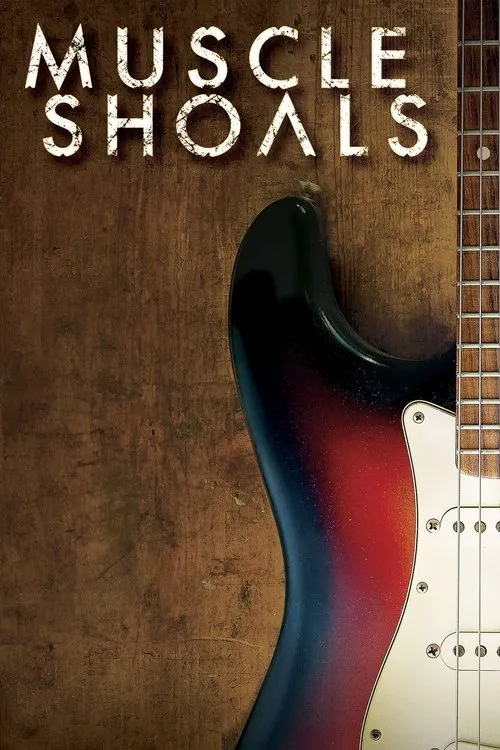Muscle Shoals

Plot
The documentary "Muscle Shoals" is a captivating tale of music, passion, and community that shines a spotlight on a small Alabama town with a rich cultural heritage. In the 1960s, Music City, USA, was not Nashville, but a tiny Alabama town nestled along the Tennessee River called Muscle Shoals. This unassuming town, with its modest population and rugged landscape, held a secret: it was the epicenter of some of the most iconic and influential music of all time. The roots of Muscle Shoals' musical revolution begin with the FAME Studios, a modest recording studio founded by Rick Hall in 1961. Hall, a young musician and producer with a keen ear for talent, had a vision to create a studio where artists from all walks of life could come together and create music that would change the world. And change the world it did. One of the earliest and most influential artists to emerge from Muscle Shoals was Otis Redding, a soulful vocalist from Georgia. Redding's voice was like honey, warm, smooth, and full of depth. When he walked into FAME Studios, Hall knew they had stumbled upon something special. Together, they crafted the song "I've Been Loving You Too Long," a hauntingly beautiful ballad that showcases Redding's vocal range and emotional delivery. The song's success was immediate, and it catapulted Muscle Shoals onto the music scene. However, Muscle Shoals' most significant contribution to music history is the legendary "Muscle Shoals sound." Coined by British music journalist Andy Kellman, this distinct musical style is characterized by its emphasis on rhythm, simplicity, and a dash of southern soul. The "sound" is deeply rooted in the town's history, with its African American and white residents coming together to create a unique and infectious music that bridged racial divides. One of the key figures behind the Muscle Shoals sound is bassist David Hood, who, along with his brothers, Tommy and Lewis, formed the nucleus of the FAME Studios house band. The Hood brothers, along with keyboardist Spooner Oldham and drummers Roger Hawkins and Jimmy Johnson, comprised a talented ensemble that could play with the best of them. Together, they created a musical alchemy that transformed raw talent into magic. Muscle Shoals' golden era was marked by the arrival of iconic artists like Aretha Franklin, Wilson Pickett, and the Staple Singers. These legends, along with lesser-known artists like Bobby Womack and Percy Sledge, flocked to FAME Studios, drawn by the studio's reputation and the magic of the "Muscle Shoals sound." Hall and his team crafted some of the most enduring and influential music of the era, with songs like "When a Man Loves a Woman," "I Never Loved a Man," and "Sitting on the Dock of the Bay" becoming staples of the American music canon. The documentary "Muscle Shoals" is a vibrant and engaging tribute to the town and its people, who, despite the challenges of racial hostility and cultural upheaval, managed to create something truly remarkable. The film is filled with archival footage, interviews with musicians and historians, and performances by the likes of Etta James, Gregg Allman, and Dolly Parton. It's a testament to the power of music to transcend boundaries and bring people together. As the film concludes, it's clear that Muscle Shoals' legacy extends far beyond its tiny Alabama town. The "Muscle Shoals sound" has influenced generations of musicians, from Led Zeppelin and The Rolling Stones to the Foo Fighters and The Black Keys. The town's spirit of collaboration and creativity has inspired artists to push boundaries and experiment with new sounds. As the curtain closes on the "Muscle Shoals" story, we're left with a sense of awe and reverence for the town's musical heritage. The documentary is a love letter to a bygone era, a celebration of the human spirit's capacity for creativity and perseverance. And as we listen to the sounds of Muscle Shoals, we're transported to a time and place where music had the power to change the world.
Reviews
Recommendations



